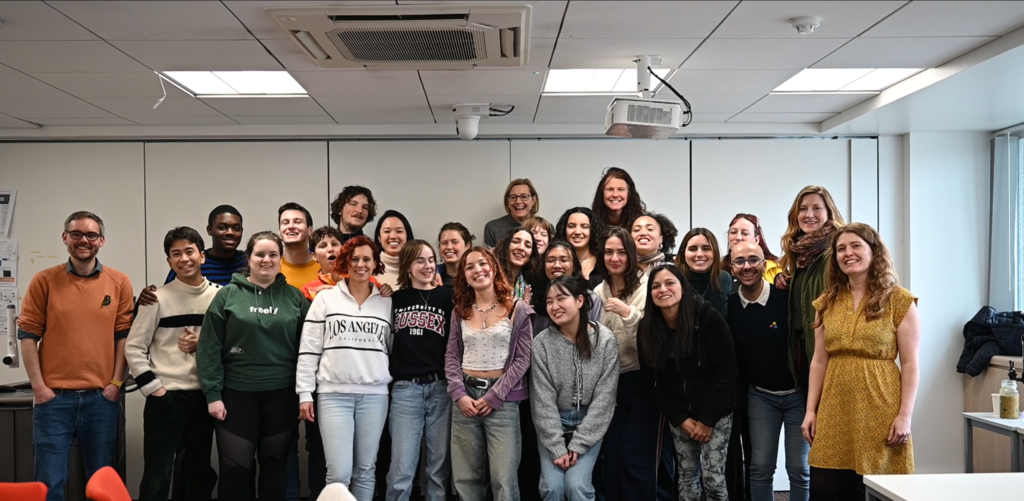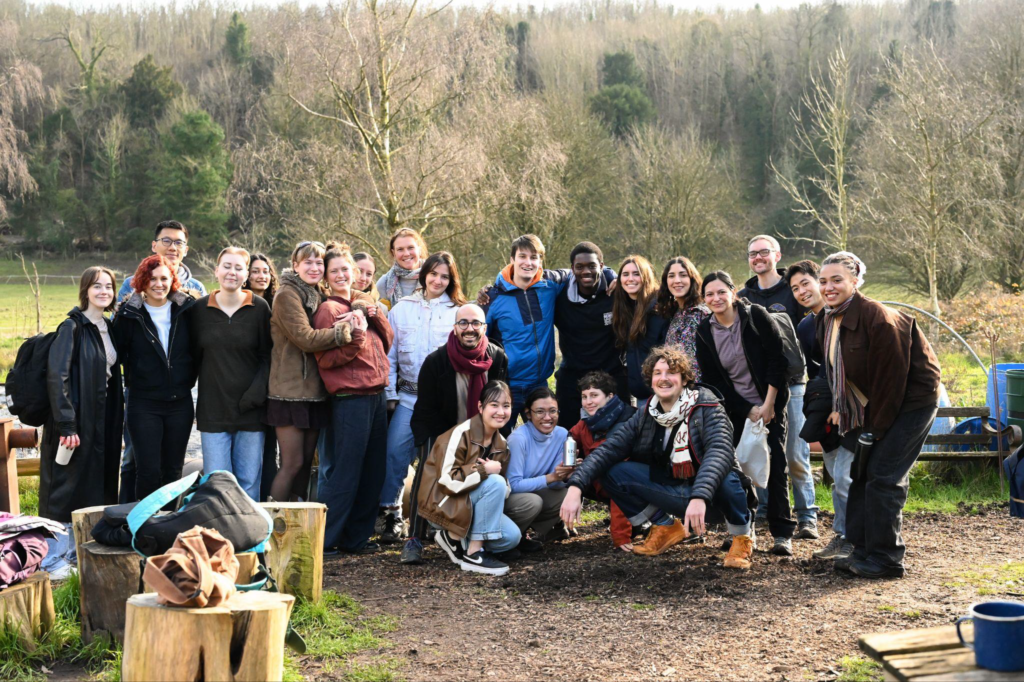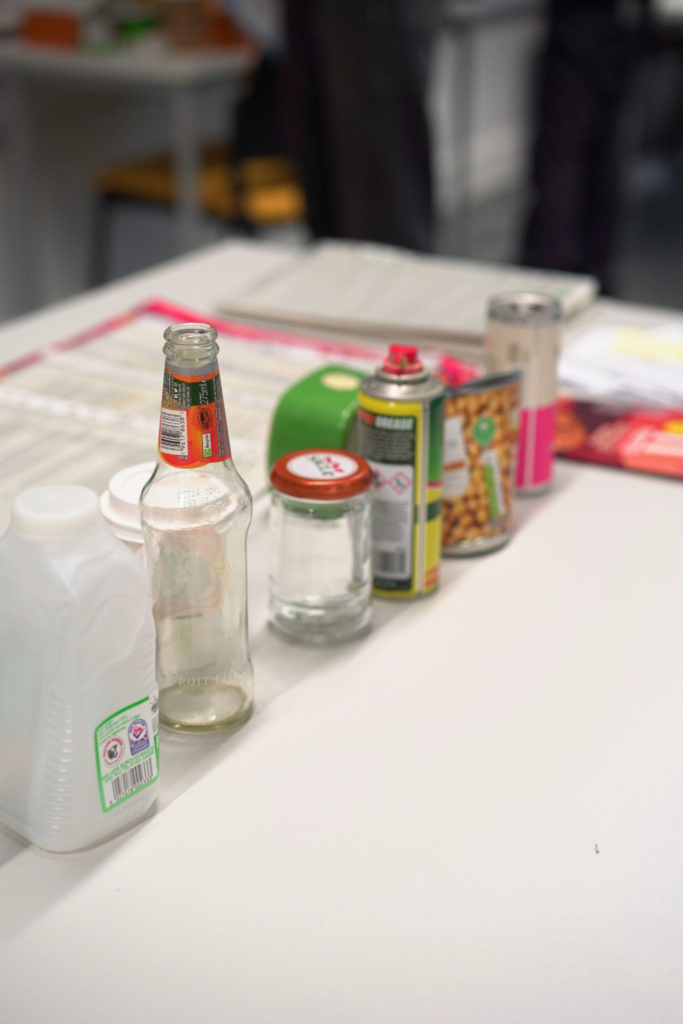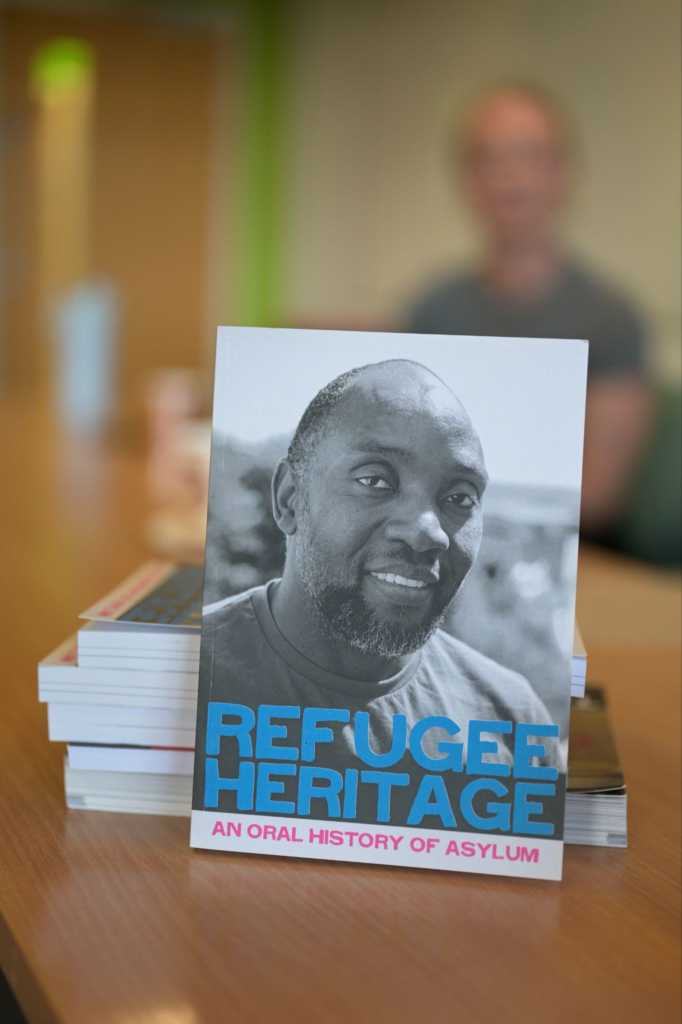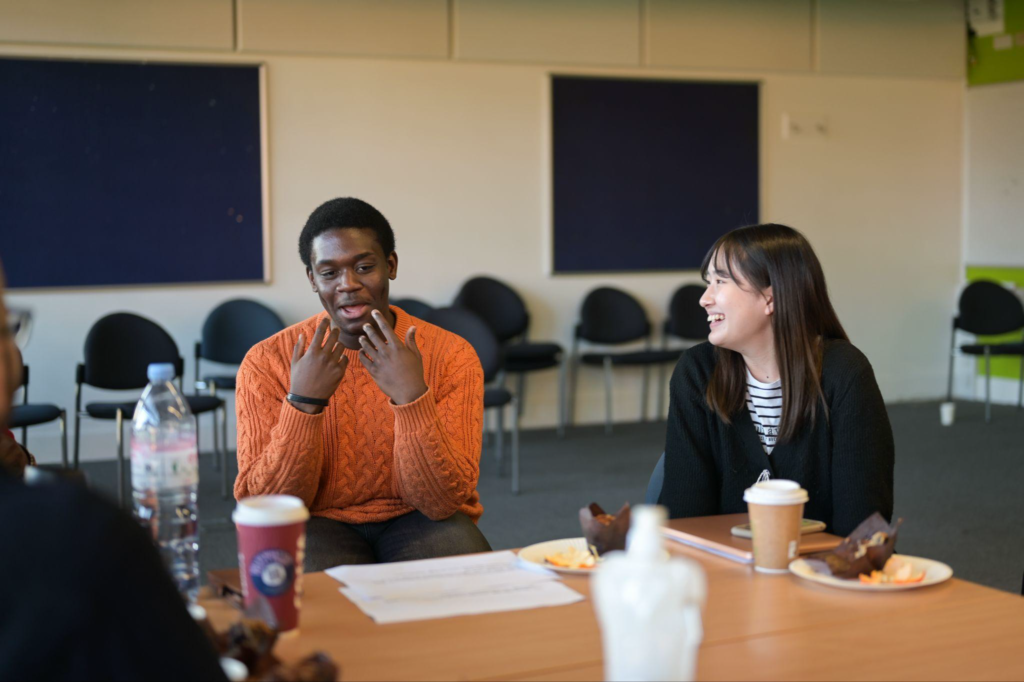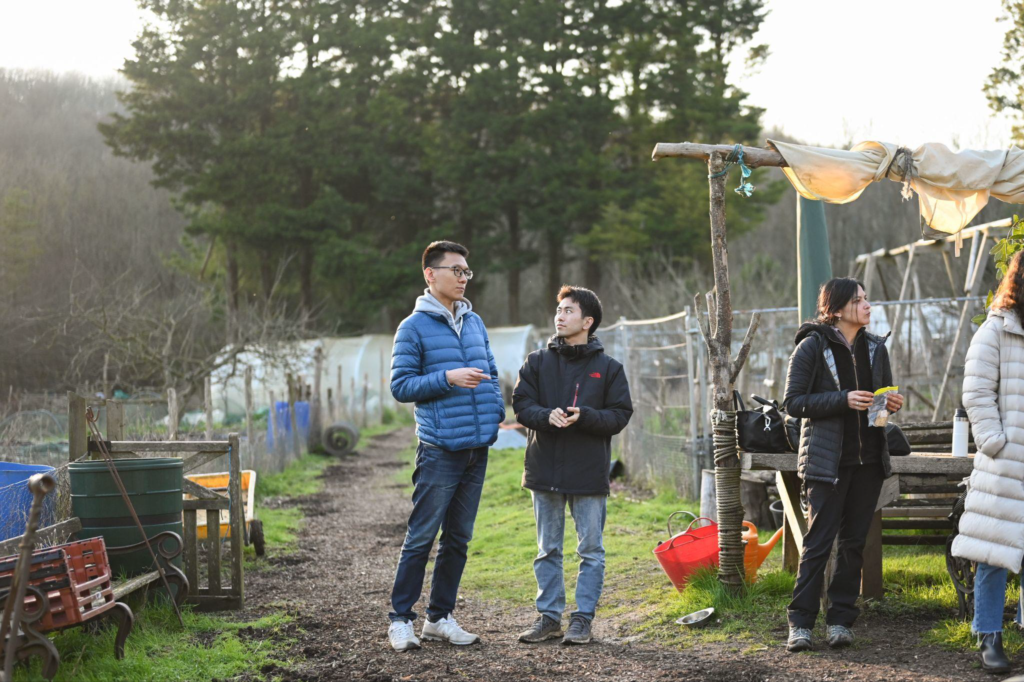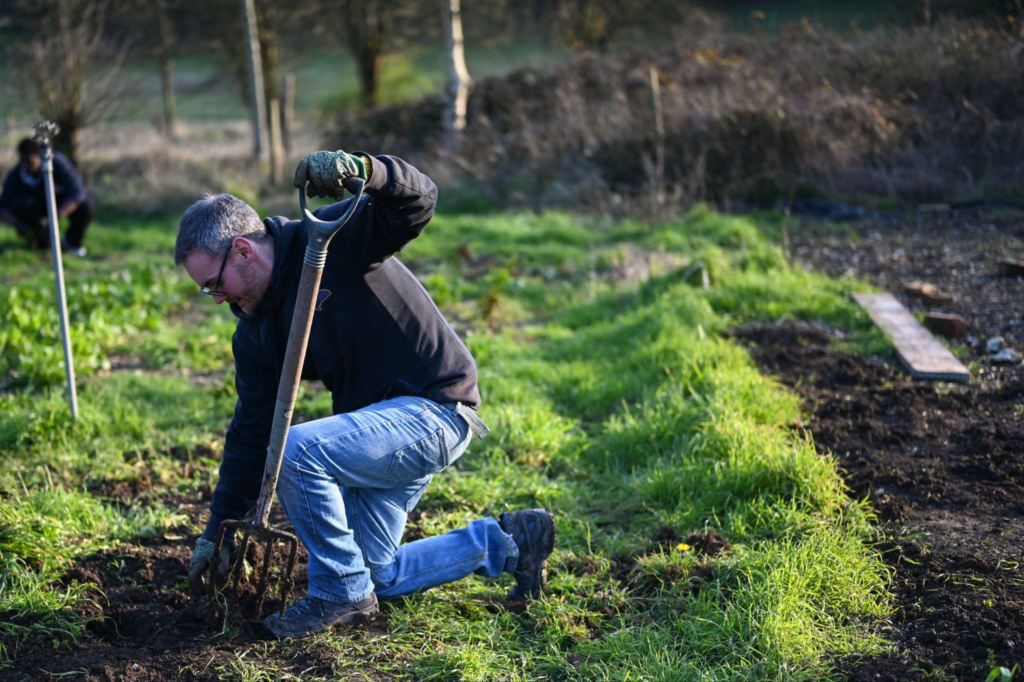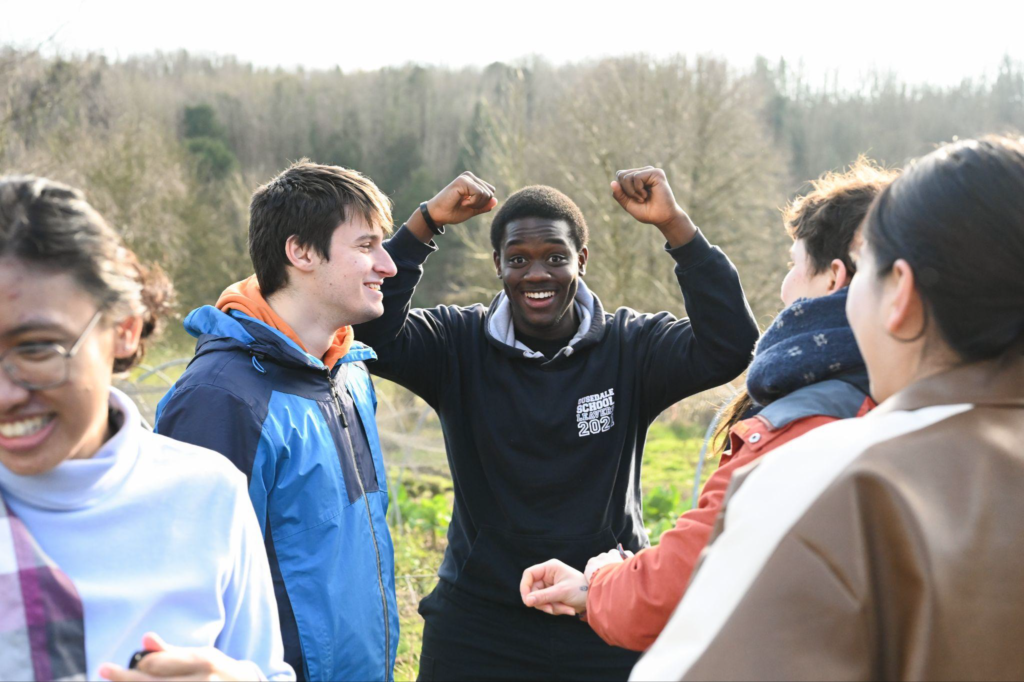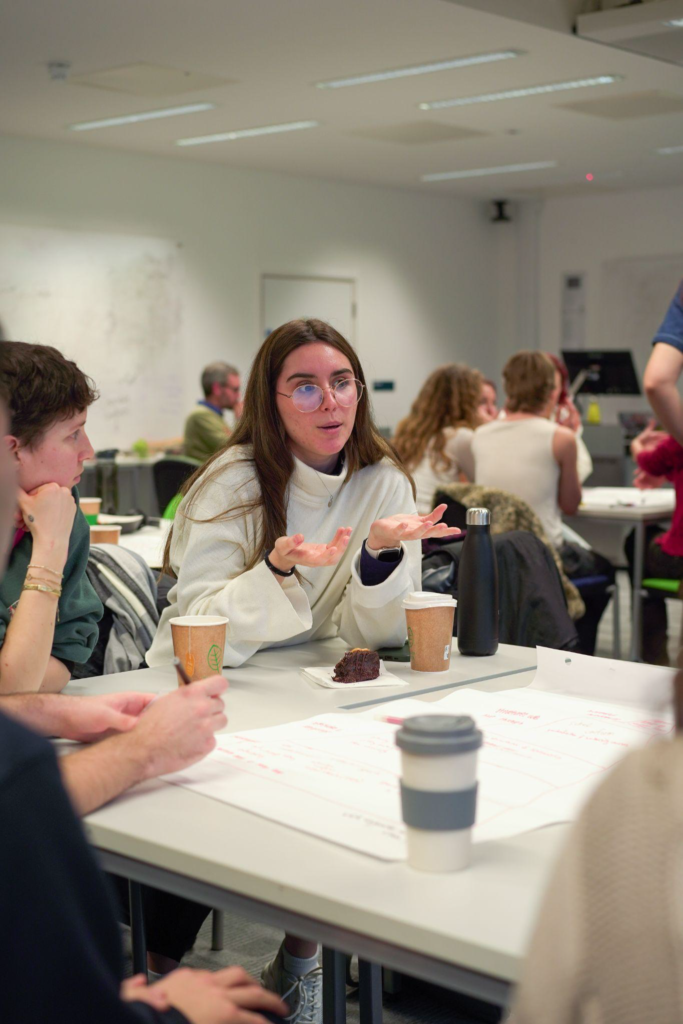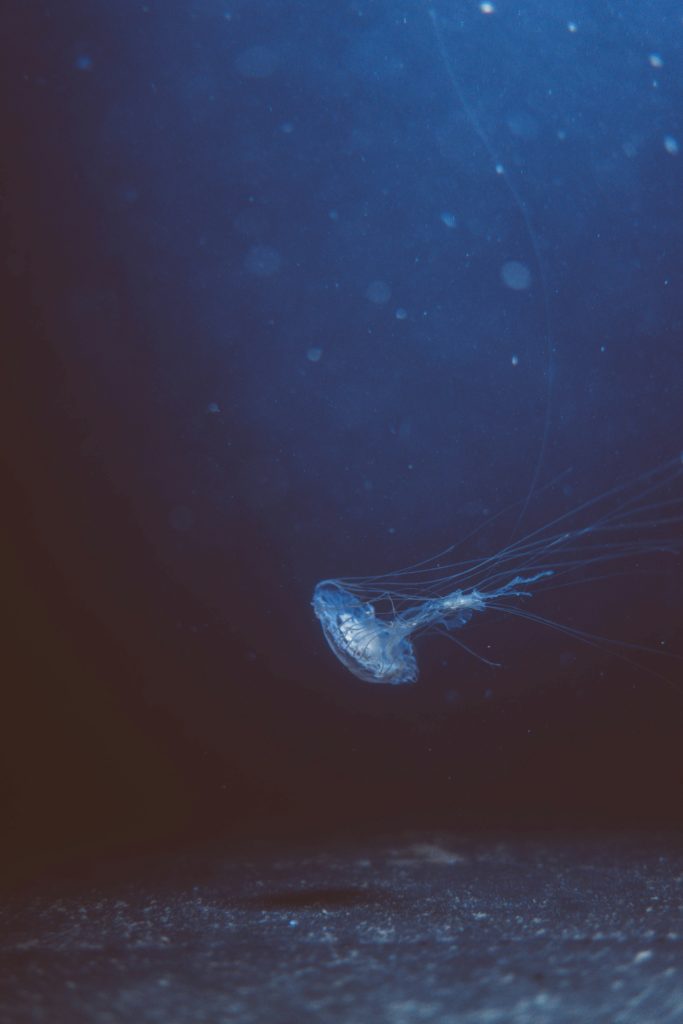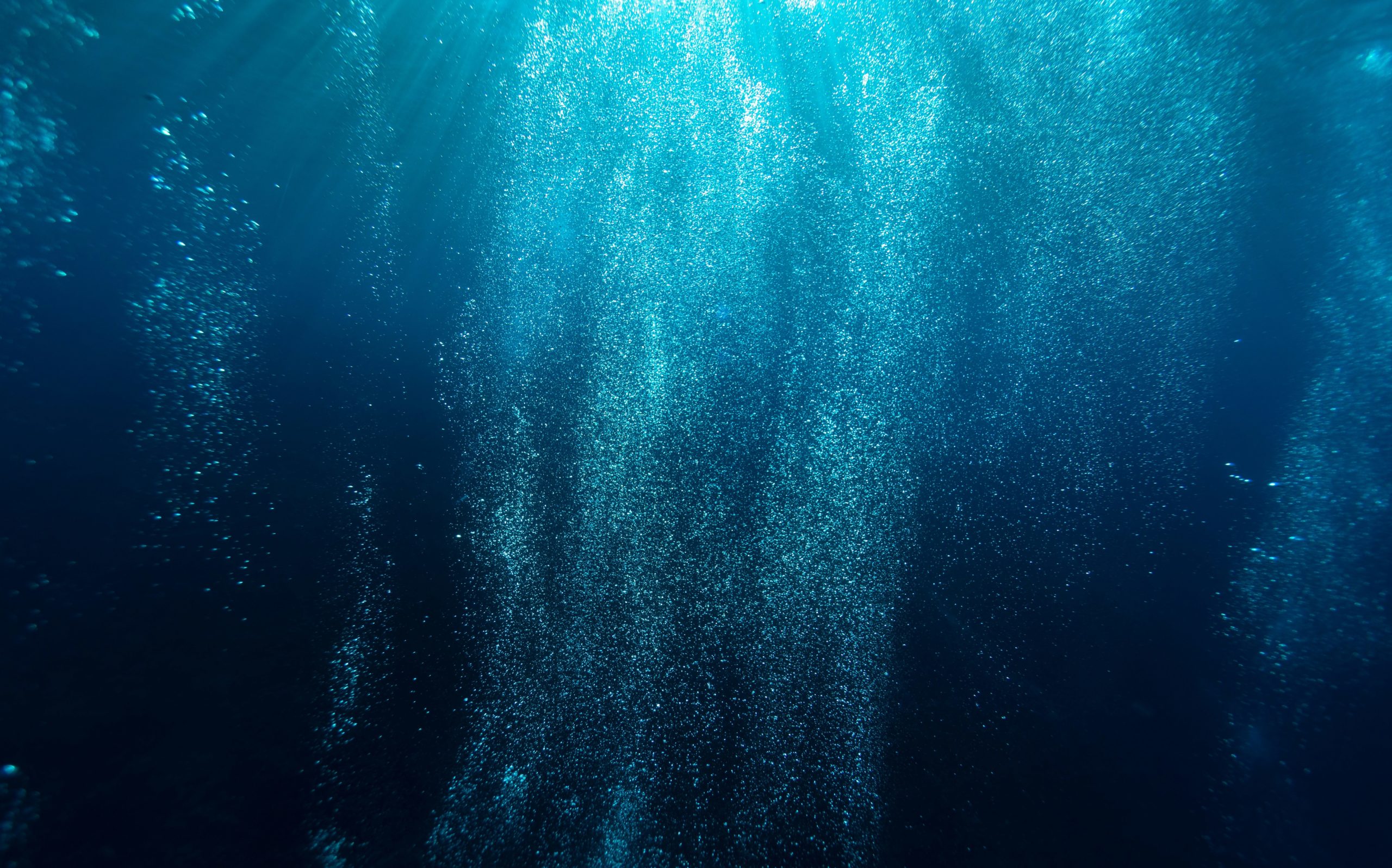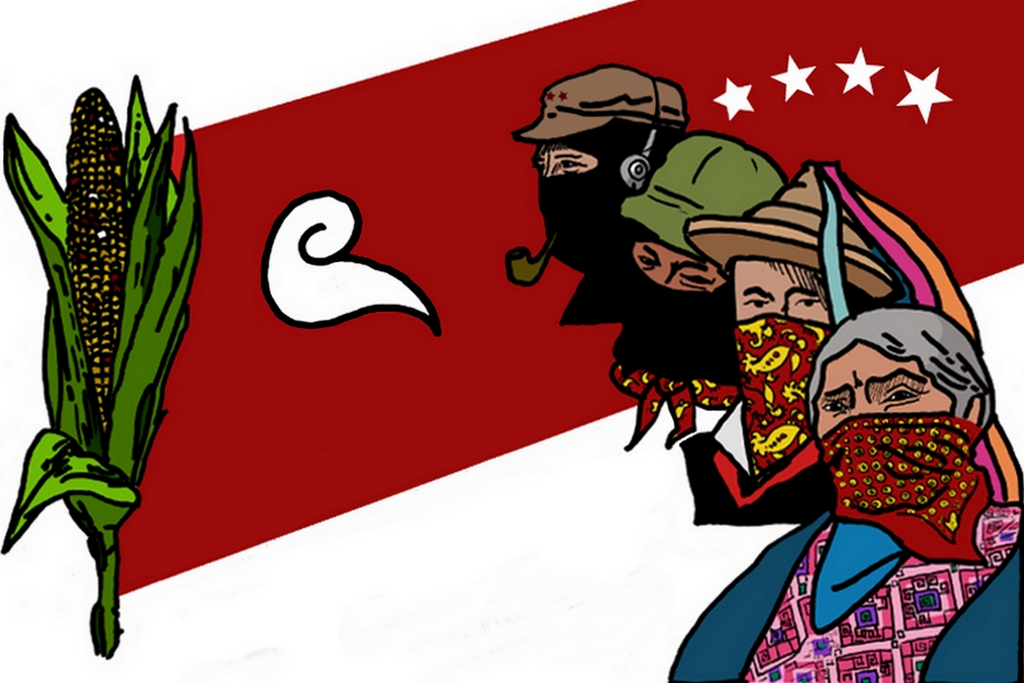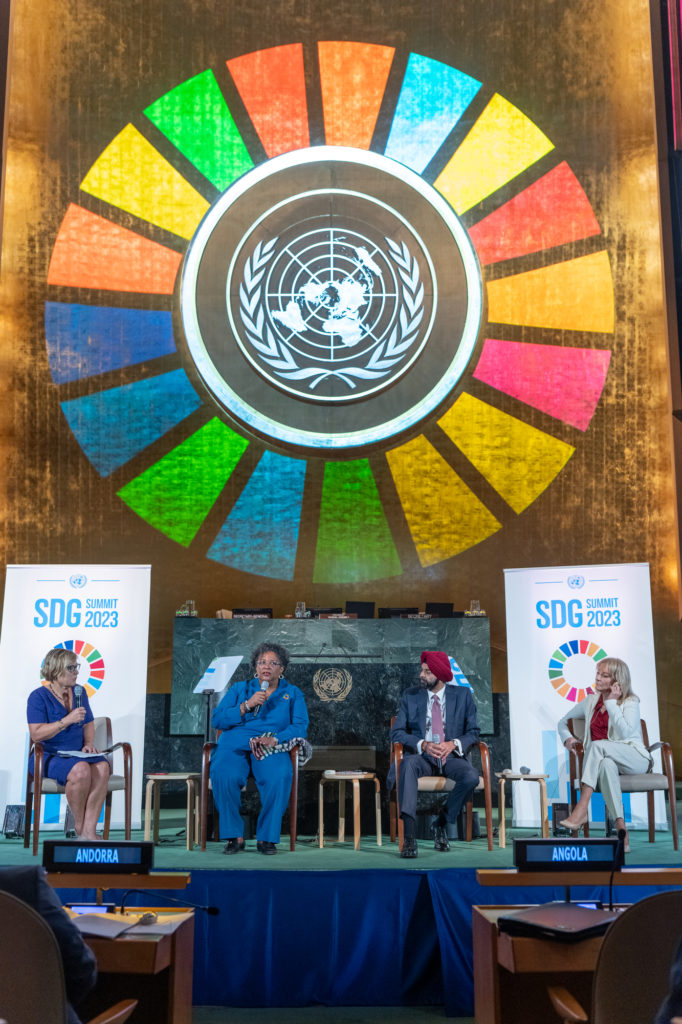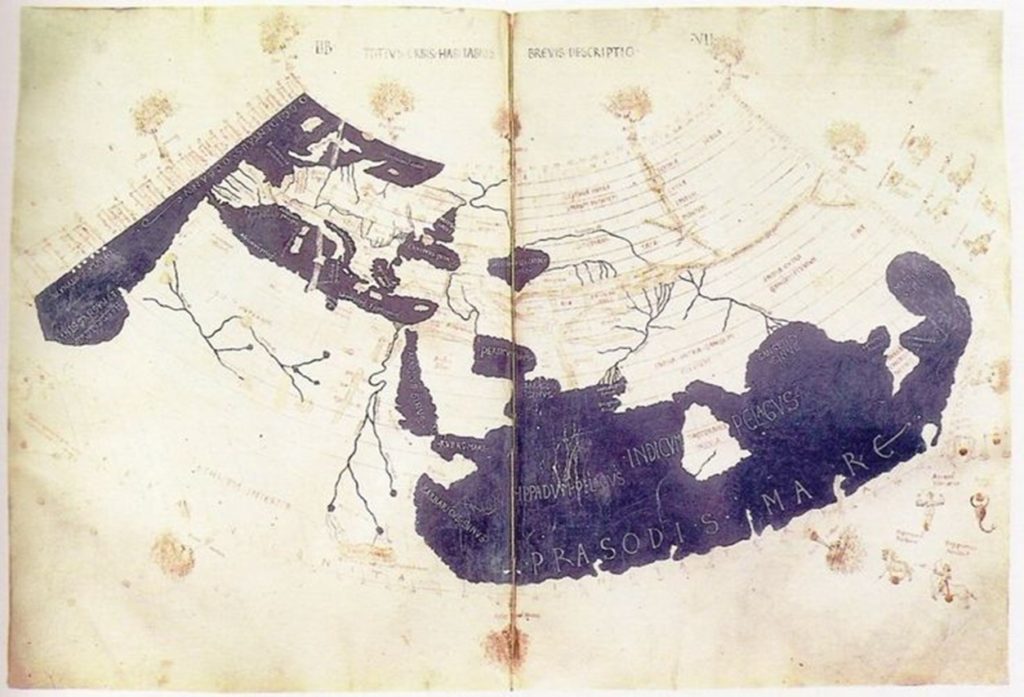
Written by Joshua Lemon, BA Geography and International Development Graduate 2023
*The views in the following article are the personal views of the author and are not an official position of the School.*
Enter the words “Deep Sea” into Google and the search will return responses concerning its depth, darkness and sense of the unknown beneath the certainties of the surface. There is a commonly held belief that more is known about deep space than the ocean floor (Childs, 2018) and the mystery that continues to surround this landscape also helps to muddy the waters of its politics. Behind the mysteries of the sea bed, however, is an emerging socio-ecological conflict, as the Deep-Sea Mining (DSM) industry grows and various actors seek to claim its value. This calls for a deeper exploration of the political dynamics at play, shining a light on the competing narratives of DSM and how the conflict is evolving.
While the deep-sea may be a dark, uncharted space in the imagination of some, for others it represents a very real economic opportunity. For mining firms, such as The Metals Company (formerly DeepGreen), the deep-sea is a space in need of urgent development with its potential wealth now made accessible through the company’s technological advancements. In March 2023, The Metals Company joined delegates from across the globe at the 28th Annual Session of International Seabed Authority (ISA) in Kingston, Jamaica, to establish the regulatory framework through which commercial DSM in the Pacific may become a possibility. This meeting transpired after Nauru fired the starting gun on mining the deep-sea by triggering a two-year clause within the 1994 UN Convention on the Law of the Sea, giving the ISA until 9th July 2023 to formulate mining regulations.
For activists such as Solomon Pili Kaho’ohalahala, from Hawaii, however, the deep-sea is not simply an economic opportunity, but an ecosystem with embedded spiritual significance. As he noted at the same meeting of the ISA in Kingston, “the ocean is our country and we come from the deepest depths of the seas”. His statement emphasised that the conference was deliberating over a space that already belongs to a people. Rather than a section of the map outside of national jurisdiction that requires international consensus to define and make open to business, it was a space with rights of its own. Activists such as Solomon, point to creation stories in which “coral polyps emerged from the deep-sea to inhabit the shorelines where Indigenous Hawaiians live today”. Thus, in cultural terms the deep-sea is not a distant, mysterious space. Rather it is a space from which ancestry and identity are drawn, factors which are not calculated by the machines that scour the seabed. The deep-sea has existed and is known by Pacific communities outside of the realm of extraction.
These two conflicting conceptions of the deep sea: as a new frontier for extraction or a living space, reflect a key conflict in how humans relate to the natural world. Mining narratives prioritise the economic value of these ecosystems, but in doing so subordinate, alienate and even criminalise other imaginaries of the sea. In other words, the deep sea now represents more than just the unexplored frontier, it raises questions over enclosure practices, power struggles and rights to shared commons. Deconstructing the deep sea in terms of its political and ecological constituents shows how the focus on the economic potential of DSM attempts to sever connections to nature and how statements such as the one from Kaho’ohalahala reflect more than just an attempt to push back on the plunder of the deep-sea but an alternative ontological understanding of our relationship to the planet.
Understanding the conflict over DSM thus offers us insights into the importance of, and opportunities for, alternative, localised and yet to be imagined ontologies. Rather than an inert resource to be claimed, the deep-sea is in a continual process of change and the growing resistance movement stands to redefine what the deep-sea is and reclaim the concept from the narrow conceptions mining companies propose. While this rise of activism suggests that the tide is turning on this conflict, understanding the shifting narratives means delving into the deep-sea as a concept itself.
Diving into the Deep
The deep-sea begins at a depth known as the ‘twilight zone’, where sunlight gradually fades. As a physical space it is incomprehensibly vast and largely unexplored, leading to its comparison with the TV show The Twilight Zone as a “dimension of imagination consisting of both substance and shadow”. Most cite its beginnings at a depth beneath 200 metres from the ocean surface, an area that constitutes 95% of the ocean volume (Hallgren and Hansson, 2021). Currently, only 0.0001% of this biome has been investigated to date and very little has been categorised (Danovaro et al., 2017). It is an area where photosynthesis can no longer occur and where researchers previously thought complex, biologic communities simply could not exist (it is claimed fewer than 10% of species have been discovered). These points emphasise the scale of the deep-sea and evoke what it is yet to be – and perhaps to who.
In physical, legal and ecological terms, then, the deep-sea represents the new or final frontier for discovery and perhaps imminently, extraction (Blanchard et al., 2023). In this regard, the future of the deep sea could be another example of an enclosure of ‘nature’ – an attempt to delineate, privatise and extract wealth from common resources – with the machines of mining companies working alongside scientists to map the ocean floor. In The Pacific Ocean, the ship, The Hidden Gem, for example, returned from an 8-week expedition commissioned by The Metals Company. This involved the deployment of a 90-ton machine that scoured the ocean floor, blasting sediment away to uncover black-rocks filled with polymetallic substances – nickel, cobalt, copper and manganese. This signals the beginnings of the well-trodden trajectory of mining – from exploration to exploitation – in the backdrop of a mission to secure minerals for renewable energy (Childs, 2022).
In the international community, the deep-sea is represented simply as “The Area”. Exploration of its seabed is tightly controlled and since 2001 31 exploratory contracts have been issued by ISA – International Seabed Authority, which regulates mineral-related activities (Blanchard et al., 2023). Yet environmental damage has not been legally defined in this sphere and currently there exists no legal implication if DSM thresholds result in environmental disaster, which makes regulating this space very difficult (Cassotta and Goodsite, 2024). Within ocean governance, ‘The Area’ lies outside of national jurisdictions of Exclusive Economic Zones and thus the seabed and subsoil thereof belongs to the ‘common heritage of humankind’ (Deberdt and Billon, 2023), a point emphasised by mining proponents as a justification for extraction. For example, the mission statement of The Metals Company is “to build a carefully managed metal commons that will be used, recovered, and reused again and again”. Here, the company asserts that the pathway to unlocking the value of this commons for everyone is via the transfer of ownership from common to private, through commercial DSM.
Mining is presented as the only fair and equitable system of resource management and stewardship, in response to this seascape entering the sphere of our global political economy. In institutional terms, the ISA stipulates that profits from resources extracted from the Area must be distributed across all signatory nations. For example, The Metals Company promises that the ‘real contribution of [its mining activities] will be when we start paying royalties’ to the sponsor nations. However, the degree to which ISA will oversee fair distribution of benefits of any economic activity in the area is not known (Blanchard et al., 2023). These ambitions from DSM actors represent efforts to construct a ‘deep sea community’ but underneath these mining regimes are powerful actors vying for control over the economic value the sea provides (Childs, 2019). These processes enclose the economic properties of the commons, via ISA contracts of exploration, which aim to quantify this heritage of humankind (Standing, 2022). Who and what will be included in this “deep-sea community” is yet to be decided, but mining interests are already drawing these political boundaries.
Unravelling the narratives of DSM shows how processes of resource ‘making’ in the commons occur under the banner of green transitions, and how the simplification of human-nature relations enable this. These processes are attempting to narrow down a plurality of views and conceptions of the deep sea in geopolitical, ecological and ontological senses. This occurs in part due to the globalising political economy of land control (Peluso and Lund, 2011), or ocean governance, and the specific patterns of capital and ideas from the mining industry that frame the debate around its economic potential. Beneath this expansion into the sea, then, there exists hidden violence, dispossession and ‘othering’ as the possible imagined and yet to be imagined futures of the deep-sea are slowly squeezed out by the supposed riches of the plunder found therein. These processes stem from the logic of extraction but are more accurately reflected as a specific worldview, or ontology.
From Extraction to Extractivism
Extraction is the physical process involving the search for, capture and export of useful minerals and resources in large volumes, often involving both social and environmental dispossession (Gago and Mezzadra, 2017). Extractivism, however, is a specific worldview in which the reproduction of nature and its resources are not considered. It is a self-reinforcing, destructive, organising concept involving the subjugation, depletion and lack of reproduction of relations and resources (Chagnon et al., 2022). It is the process by which resources become valued both economically and politically, with the only end point being economic returns from an exhausted landscape.
In this regard, extractivism is the product and extension of capitalism and processes of capital accumulation in which the continual search for profit manifests with the discovery of new frontiers of resource-rich areas (Ye et al., 2019). Here, extractivism is not concerned with the reproduction of nature, rather it uncovers pockets of wealth that can be repackaged and exploited until complete depletion (Ye et al., 2019). It embodies the society-nature nexus in which nature is conceptualised as an inert, exploitable object that society may profit from (Laastad, 2019). This involves the separation of minerals from nature and their subsequent transformation into commodities in the form of consumable products. Thus, the cycle and the search for new sources of wealth is a continual one.
The latest manifestation is the development of DSM. This nascent industry is framed as a facilitator to achieve the transition to renewable energy, supposedly distinct from the chequered history of terrestrial mining. As the global response to climate change appears to be the switch to low-carbon energy sources, the DSM industry points out this will involve the intensification of traditional mining and therefore exacerbate social and ecological injustice (Lèbre, et. al., 2023). Whilst the reasoning of this point in itself can be contested, given the possibilities of investing in recycling or more radically constructing a society with lower energy demands on the environment, DSM nonetheless is capitalising on this sentiment. This dilemma between the energy-extractive nexus is, in the same breath, solved by proponents of DSM, who suggest environmental damage will be less than terrestrial mining (ibid.). As Gerard Barron insists:
“Extracting battery metals like nickel and cobalt from terrestrial mines is facing many challenges, and the environmental, CO2 and social costs are simply too high. Seafloor polymetallic nodules contain more than enough base metals that the world needs to get to a clean energy economy, and they require no blasting, drilling or digging. Indeed, our life cycle sustainability analysis shows that, with regards to NMC batteries with copper connectors for electric vehicles, ocean nodules generate at least 75% less CO2 when compared to producing these metals from land ores”.
By benchmarking DSM against traditional mining practices, mining companies are able to reduce their perceived ecological footprint (Childs, 2019). However, the benefits of reshuffling the global supply chain of these minerals will be undermined if DSM does not replace terrestrial mines. Instead, extraction would extend and intensify in both these frontiers. The result will be replacing or adding one type of harm for another in new geographies. For example, in a recent investigation, Greenpeace has uncovered deals between DSM company DeepGreen and Swizz, terrestrial mining conglomerate Glencore, in which 50% of the copper and nickel mined in the Nauru-sponsored zone is pledged to the multinational. This questions the extent to which DSM actors differ from their terrestrial counterparts and further undermines notions of a universal, deep-sea community. The socio-ecological implications associated with an extractivist logic are critical to grasp, as despite claims from Deep-Sea mining proponents, extraction in whatever frontier will impact the relationship of society and nature. But this is not the only strategy mining regimes employ in their efforts to secure this future.
Putting the Deep-Sea to Work for Sustainable Futures
The Metals Company mobilises a specific view of nature, where minerals are “made to do work” for society (Childs, 2019:2). As CEO Gerard Barron neatly encapsulates, the minerals found on the ocean floor are “a battery in a rock”. These nodules contain four critical minerals required to facilitate the transition to renewable energy. By positioning the physical properties of the ocean in-line with efforts to secure renewable technology, miners have sparked the possible expansion of mining and kick-started a new resource race to the ocean floor. These narratives obscure the true impact on the environment and society, with the environmental degradation associated with mining evermore hidden behind a continual emphasis on the drive for a clean, green and now ‘blue’ growth economy.
Strategies thus include efforts to engineer and exacerbate the urgency of the climate crisis and neatly square the procurement of natural resources as the necessary ingredient to secure a sustainable future. Here mining companies propose further extraction in new frontiers, to unlock the potential of undiscovered nature and its resources to fuel a clean energy transition. This crisis narrative currently justifies the depletion of terrestrial mines and is extending the demand for minerals needed for the energy transition to the deep-sea (Jouffray et al., 2020). As Barron, CEO of The Metals Company, asserts “We don’t have a spare decade to sit around”, framing oceans as the final frontier to conquer on the quest towards a circular economy. In this narrative mining corporations mobilise the resources in the ocean – ‘critical minerals’ – in order to posit them as essential for the progression towards a renewable, electrified economy (Childs, 2019).
Understanding that extractivism is not merely a physical value adding process but also a set of specific practices aimed to manufacture consent, mitigate dissent and lessen perceived environmental damage is crucial to unpack how extractive industries garner legitimacy for their activities. In the context of DSM, the (meta)physical properties of the sea are dispossessed from the sea itself and claimed by proponents of blue growth as part of a suite of strategies to integrate economic growth with sustainable development practices (Childs 2019). Manufacturing these narratives involves a restructuring of the environmental and social landscapes of the ocean seabed, which until recently had been technologically inaccessible (Schmidt and Rivera, 2020). Carefully selected language that manufactures urgent demand for these critical minerals, serves to formulate a ‘natural licence to operate’, thus bypassing any social contestation or need for social licence (Childs, 2019).
Mining companies draw upon well-rehearsed strategies of ‘corporate counterinsurgency’ – both “soft” and “hard” – that aim to shape and govern the environment in which their activities take place, making the process of extraction smoother (Childs, 2019). Here the ‘corporate counterinsurgency toolbox’ deploys language to pacify any possible resistance to the mining activity. In the case of DSM, miners visualise the process of extraction as merely “lifting polymetallic nodules to the surface, taking them to shore, and processing them with near-zero solid waste, no tailings or deforestation, and with careful attention not to harm the integrity of the deep-ocean ecosystem”. Replacing terminology such as “machine” for “collector”, “extract” for “lift”, and explaining how any “sediment” or “waste” will “settle down within a few hundred metres”. All echo a subversive effort to garner sympathy for mining activities that have supposedly evolved past the known impacts of terrestrial mining (The Conversation, 2021).
Corporate strategies are thus employed to manufacture demand (emphasising the challenge of climate change) and supply (deep-sea metals and minerals as a solution) and squarely place the necessity of DSM to develop these extractive frontiers. Crucially, strategies such as these mask blatant extraction under the narrative of building a ‘metals commons’. This serves two means. Firstly, it deflects the attention away from the failure and lack of reproduction of these minerals or the marine ecology that depend on them in the deep sea. Secondly, it denies the agency of marine life that live on and within the ocean floor, some of which depend on these nodules (Stratmann et al., 2021). Studies into the potential cascading impacts of nodule removal point to the weakening of the food-web integrity across ocean strata (ibid.). As Ojeda et al writes, extractivism involves a regime in which value is captured from nature with the absence of reproduction (Odeja et al., 2022:2). In this sense, metaphysical properties of the deep sea are reduced to the usefulness of polymetallic nodules, in which ownership (beyond individual states) is enclosed by miners who tout notions of ‘humankind’, dispossessing the ocean from nature and the local communities. In this sense, the oceanic commons is being stolen from communities and transferred to the private sphere under the guise of the metal commons (Standings, 2022).
A Metal Commons for Whom?
The DSM narrative shifts attention away from its environmental impact by rebranding this new form of extractivism, hiding practices of extraction behind a collective struggle toward securing a renewable economy. Yet this struggle is a monopolising and exclusionary one, in which the supposed truth is that if we allow miners to unlock this last and latest deposit of mineral wealth it will be the last – but will it? Crucially, it occurs alongside efforts to reproduce the otherness of the ocean, further widening the gap between society and nature. In a collection of essays from 1913, Marcel Proust writes of the alien nature in the deep-sea and a “myriad of protozoa we cannot see” (Worden and McRose, 2009: 1). By distancing the ocean from the observer in writings the deep-sea has remained alien in the mind. Anthropologist Stefan Helmreich argues that modern oceanographers recycle this “otherness of the ocean” mindset, which warps our stewardship of it – or lack thereof (Worden and McRose, 2009: 1). DSM proponents are drawing from an ontology that cements the separation between wider society and the deep-sea, and are occupying these gaps with extractivist ontologies.
The construction and emphasis upon the metal commons, from the mining industry, posits crucial questions of sovereignty and ownership. Of the current 16 mining contracts awarded to explore the Pacific’s CCZ, 8 of them are owned by four entities, including The Metals Company. This exemplifies the conflict between whose version of nature counts, where mining companies are able to manufacture a codified, exploitable nature, free from society, which is pitted with urgent messages to secure a renewable energy transition. The appropriation, repackaging and representation of the deep-sea from communities with historical ecological connections within debates and institutions supposedly established for the protection of these commons is concerning.
Ultimately though, the lack of territory and stateless characteristics of the deep sea is both a blessing and a curse in this conflict. This is because mining companies must contend with the need for a ‘social licence to operate’ and deal with the consequent resistance from social actors (Childs, 2019). For this reason, the ability of mining companies to influence the construction of deep-sea narratives enables them to legitimise the necessity for extraction and minimise social tensions. Alongside this mining conception is the growing struggle from activists who are reclaiming the stateless-nature of the deep-sea. The emergent backlash, in the form of environmental activism, from different sectors, governments, activists – both individual and collective – calls for an international moratorium on DSM. A tweet from Costa Rica’s representative to the International Seabed Authority (ISA) highlights the growing concern over the current resource race towards the bottom of the deep sea in the Pacific. “Mining the seabed cannot be rushed [because] of the economic interests of a few”.
In a recent protest, climate activists such as Solomon Pili Kaho’ohalahala, Maui waterman Archie Kalepa, and cultural practitioner Hinaleimoana Wong-Kalu demonstrated on the shores to vocalise against the industry’s activities and the presence of The Metal Company’s research vessel, The Hidden Gem. This activism resulted in the ship promptly changing course, perhaps echoing the change in discourse in policy and the reclaiming or restructuring of the deep-sea, reflected in the decision by the EU Parliament in February 2024, to enter a global movement calling for a moratorium on DSM.
The growth of the grassroots resistance against DSM is also growing. Organisations such as Greenpeace have taken their protests to geographies closer to the deep sea in efforts to both confront exploratory mining missions and reclaim the ownership and connection of oceanic peoples of the Pacific. The battle is far from over however, and these efforts are increasingly being criminalised by mining companies who mobilise language to construct a landscape in which the only violence and illegality is performed by those genuinely invested in protecting the deep-sea. In the case of Greenpeace, The Metals Company filed an injunction in court against an “illegal” protest to occupy its research ships. The CEO, “respecting Greenpeace’s right to protest” is more concerned with his efforts to collect “important scientific data”. More overtly, the company recently accused Greenpeace of being “anti-science”.
As the conflicts over the deep sea and commercial DSM continue, it is crucial to re-imagine, remember and accommodate, alternative conceptions of this landscape that exist outside of the viewpoint of extractivism. While mining companies have found new, subversive ways in which to mask the typical impacts of extraction behind projects of blue growth, any truly sustainable relationship with the deep sea will rely on a deeper understanding of the needs and interests of the marine life and local communities. More broadly – and as with so many of our environmental challenges – it points to a need to revisiting and re-imagining our connections with the planet. Only by acknowledging a plurality of ontologies of the deep sea will this seascape be truly protected for the common heritage of all humankind and nature too.
This blog was written as part of the third-year International Development module ‘Political Ecology and Environmental Justice’
Reference List
Blanchard, C., Harrould-Kolieb, E., Jones, E. and Taylor, M.L. (2023). The current status of deep-sea mining governance at the International Seabed Authority. Marine Policy, 147, p.105396. doi: https://doi.org/10.1016/j.marpol.2022.105396.
Cassotta, S. and Goodsite, M. (2024). Deep-seabed mining: an environmental concern and a holistic social environmental justice issue. Frontiers in Ocean Sustainability, 2. doi: https://doi.org/10.3389/focsu.2024.1355965.
Chagnon, C.W., Durante, F., Gills, B.K., Hagolani-Albov, S.E., Hokkanen, S., Kangasluoma, S.M.J., Konttinen, H., Kröger, M., LaFleur, W., Ollinaho, O. and Vuola, M.P.S. (2022). From extractivism to global extractivism: the evolution of an organizing concept. The Journal of Peasant Studies, 49(4), pp.760–792. doi :https://doi.org/10.1080/03066150.2022.2069015.
Childs, J. (2018). Extraction in Four Dimensions: Time, Space and the Emerging Geo(-)politics of Deep-Sea Mining. Geopolitics, 25(1), pp.189–213. doi: https://doi.org/10.1080/14650045.2018.1465041.
Childs, J. (2019). Greening the blue? Corporate strategies for legitimising deep sea mining. Political Geography, 74, p.102060. doi: https://doi.org/10.1016/j.polgeo.2019.102060.
Childs, J. (2022). Geographies of deep sea mining: A critical review. The Extractive Industries and Society, p.101044. doi: https://doi.org/10.1016/j.exis.2022.101044.
Danovaro, R., Corinaldesi, C., Dell’Anno, A. and Snelgrove, P.V.R. (2017). The deep-sea under global change. Current Biology, [online] 27(11), pp.R461–R465. doi: https://doi.org/10.1016/j.cub.2017.02.046.
Deberdt, R. and Billon, P.L. (2023). Green transition mineral supply risks: Comparing artisanal and deep-sea cobalt mining in a time of climate crisis. The Extractive Industries and Society, 14, p.101232. doi: https://doi.org/10.1016/j.exis.2023.101232.
Gago, V. and Mezzadra, S. (2017). A Critique of the Extractive Operations of Capital: Toward an Expanded Concept of Extractivism. Rethinking Marxism, 29(4), pp.574–591. doi: https://doi.org/10.1080/08935696.2017.1417087.
Hallgren, A. and Hansson, A. (2021). Conflicting Narratives of Deep Sea Mining. Sustainability, 13(9), p.5261. doi: https://doi.org/10.3390/su13095261.
Hein, J.R. and Mizell, K. (2022). Deep-Ocean Polymetallic Nodules and Cobalt-Rich Ferromanganese Crusts in the Global Ocean. The United Nations Convention on the Law of the Sea, Part XI Regime and the International Seabed Authority: A Twenty-Five Year Journey, pp.177–197. doi: https://doi.org/10.1163/9789004507388_013.
Jouffray, J.-B., Blasiak, R., Norström, A.V., Österblom, H. and Nyström, M. (2020). The Blue Acceleration: The Trajectory of Human Expansion into the Ocean. One Earth, 2(1), pp.43–54. doi: https://doi.org/10.1016/j.oneear.2019.12.016.
Laastad, S.G. (2019). Nature as a Subject of Rights? National Discourses on Ecuador’s Constitutional Rights of Nature. Forum for Development Studies, pp.1–25. doi: https://doi.org/10.1080/08039410.2019.1654544.
Lèbre, E., Kung, A., Savinova, E., Valenta, R.K. (2023). Mining on land or in the deep sea? Overlooked considerations of a reshuffling in the supply source mix. Resources, Conservation and Recycling, 191, pp.1-11. doi: https://doi.org/10.1016/j.resconrec.2023.106898
Ojeda, D., Nirmal, P., Rocheleau, D. and Emel, J. (2022). Feminist Ecologies. Annual Review of Environment and Resources, 47(1), pp.149–171. doi: https://doi.org/10.1146/annurev-environ-112320-092246.
Peluso, N.L. and Lund, C. (2011). New frontiers of land control: Introduction. Journal of Peasant Studies, 38(4), pp.667–681. doi: https://doi.org/10.1080/03066150.2011.607692.
Schmidt, O. and Rivera, M. (2020). No people, no problem – narrativity, conflict, and justice in debates on deep-seabed mining. Geographica Helvetica, 75(2), pp.139–150. doi: https://doi.org/10.5194/gh-75-139-2020.
Standing, G. (2022). The Blue Commons. Penguin UK.
Stratmann, T., Soetaert, K., Kersken, D. and van Oevelen, D. (2021). Polymetallic nodules are essential for food-web integrity of a prospective deep-seabed mining area in Pacific abyssal plains. Scientific Reports, [online] 11(1). doi: https://doi.org/10.1038/s41598-021-91703-4.
Worden, A., McRose, D. (2009) The otherness of the oceans. Nature 459, 166–167. doi: https://doi.org/10.1038/459166a
Ye, J., van der Ploeg, J.D., Schneider, S. and Shanin, T. (2019). The incursions of extractivism: moving from dispersed places to global capitalism. The Journal of Peasant Studies, 47(1), pp.155–183. doi: https://doi.org/10.1080/03066150.2018.1559834.
